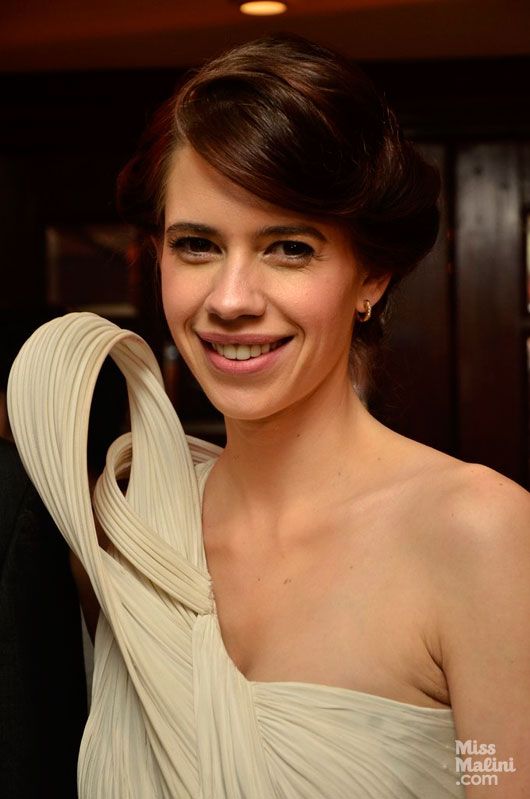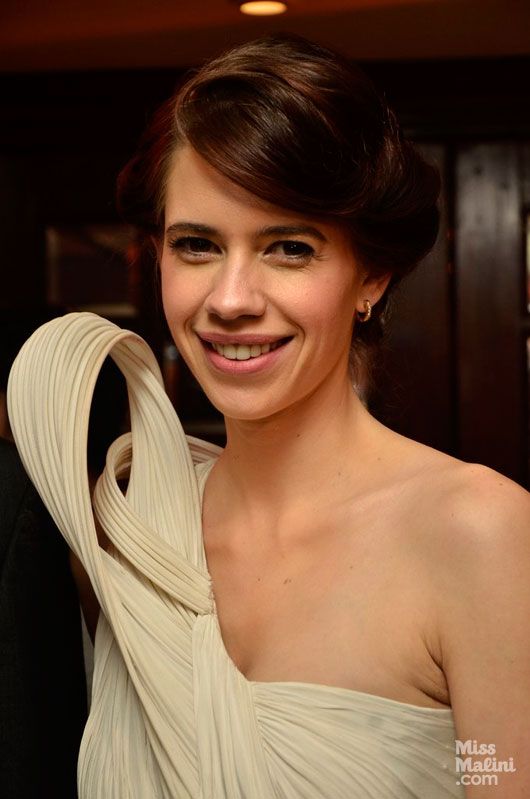
In a race where most leading ladies of Bollywood are fighting it out to be the ‘hottest’ actress, Kalki Koechlin is one of the few who’re comfortable being the ‘coolest’. The thing with Kalki is that not only does she manage to impress you with her acting and choices of films, she also lends her voice to important issues in society.
Her much awaited film Margarita With A Straw (MWAS) is releasing soon in India and we are really looking forward to it. She wrote a column about her film where she debunks a lot of myths and perceptions about disability and sexuality and their portrayal in our films.
Here are 6 important points she made:
1. That the protagonist on a wheelchair is incidental to the film, not central
Margarita, with a Straw (MWAS) is neither about cerebral palsy nor is it about bisexuality. It is about a teenager, who like most teenagers, wants to be loved and desired, is excited about kissing and worried about losing her virginity, and oh yes, she happens to be in a wheelchair and yes she happens to fall in love with another girl. The reason I say this is because we all have a tendency to take subjects like disability and sexuality very seriously, we tend to be intimidated by these subjects because they are rarely explored in films, and rarely discussed openly in public. MWAS, on the other hand, just goes all out wearing its heart on its sleeve about what it’s like to be young, awkward, passionate, hormonal and human.
2. That people in wheelchairs are normal!
People in wheelchairs get drunk, people in wheelchairs smoke, party, wear mini-skirts, people in wheelchairs have sex. Two years ago I would have found this surprising, a year ago when I met Malini (a girl who has cerebral palsy) I found this fascinating and today I realise that it’s normal.
3. That we take up “issues” as a fad
In a world where we confront issues only when they become “issues”, not when they take place quietly in the privacy of our homes but when they start making headlines, when section 377 was reversed, when someone is raped in a horrific way, or discriminated and shamed publicly, that is when we start paying attention to human rights, but in our daily life we are often cruel and insensitive to the very same issues we uphold in public.
4. That there is an obvious double standard in our society
I’ve seen, for instance, men harp on about women’s freedom, women’s rights and then at that very moment, have their lunch served to them by their submissive wives.
5. That MWAS is truly different
In MWAS, Laila’s disability is ordinary, it is something her family and friends are used to, and so it disappears and we start focusing on the person behind it. After that it’s like any other coming-of-age film.
6. That if she *had to* call the film anything, she would call it…
“An ordinary person discovering that life is extraordinary”. I guess that would be the one liner if we had to have one. That would be our headline, if one absolutely insisted on one.
Way to go, Kalki! Thank you for being such an inspiration.
You can read the entire column here.

